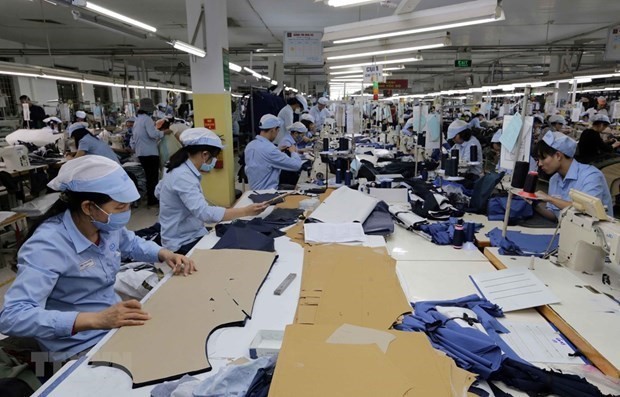
German enterprises plan to expand business in Viet Nam
Latest
 |
| German enterprises plan to expand business in Viet Nam. |
2021 was a difficult year for German companies as the pandemic had a serious impact on them, regardless of industry and size. However, he said, they have tried their best to comply with all regulations issued by the Vietnamese government and secure health and jobs for the labour force as well as avoid supply chain disruptions.
The highlight for the German business community was the campaign to call for vaccine donations, which started in October. Thanks to the support of GBA members, they have succeeded in convincing the German government to donate 2.6 million doses of AstraZeneca COVID-19 vaccine to Viet Nam.
This was an unprecedented act of the German government to support companies abroad, showing the importance of bilateral trade between the two countries.
The Vietnamese government has issued several policies to support businesses including deferral of tax and land lease payments, one-time support for employees, unemployment insurance and corporate income tax reductions for companies with a turnover of less than 200 billion VND (8.7 million USD). Those incentives help businesses recover partially, but expenses for COVID-19 prevention like testing and extra allowances for employees remain much higher.
According to Goetz, Viet Nam remains a strategic investment destination for European corporations and enterprises. More than 65 percent of the respondents of a recent survey conducted by the German Chamber of Commerce (AHK) believed that the Vietnamese economy would recover in 2022.
Over the last year, the number of new investments from German companies has been quite low. This, however, did not reflect a decrease in interest of German investors in doing business in Viet Nam. It is just simply a slowdown due to travel restrictions and lockdowns.
"We believe that many investors are ready to reschedule their visits to the country in the first half of this year", he said.
The EVFTA is a key driver for the optimism of German companies in Viet Nam. It gives European companies better opportunities to expand further in the market, he told Dau tu (Vietnam Investment Review).
The adoption of a flexible anti-COVID-19 strategy will ease the constraints and solve bottlenecks for an economic bounceback in Viet Nam this year. With a bilateral trade volume of almost 15.8 billion USD in 2021, Germany is so far the most important European partner of Viet Nam, and with the advantages of the EVFTA, it is expected that there will be more opportunities for potential exploration, partnerships, and dialogue between enterprises of the two countries in 2022.
Regarding investment trends among German firms in Viet Nam, the GBA chairman said nearly 50 percent of them have planned to expand their business to diversify their supply chain, hence reducing the dependency on China, adding that they still focus on industrial strengths such as manufacturing and technical processing and services.
He also said that sustainable energy and infrastructure solutions are segments with very high potential for future investments. Many German companies are leading in these fields and can support Viet Nam in the coming time, Goetz said.





















